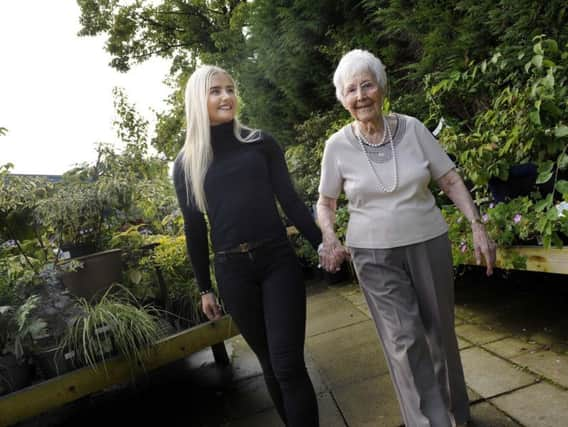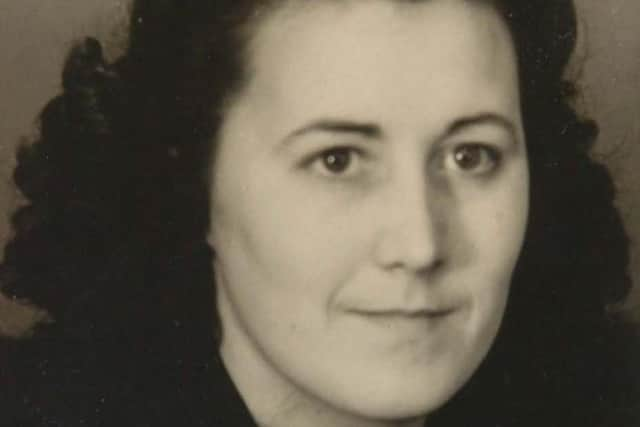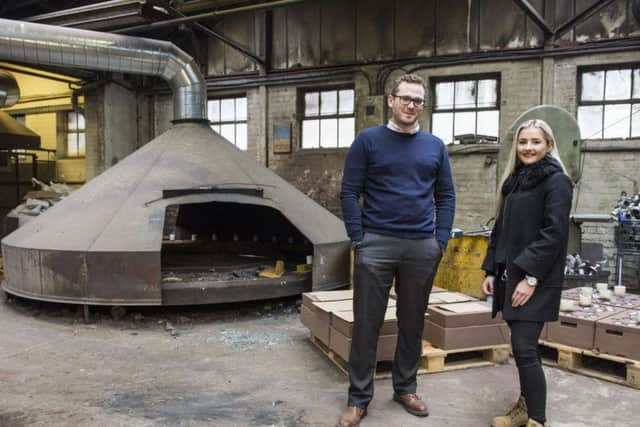Sheffield's 'Women of Steel' past and present prove engineering doesn't have to be men's work


Yet despite the 77 year difference in age – there are more similarities than meet the eye.
One of Sheffield’s now famous ‘Women of Steel’, Kathleen, aged 96, was just 19 when she started working at Brown Bayleys, rolling steel to be used in the huge war effort.
Advertisement
Hide AdAdvertisement
Hide Ad

Ella Cheetham is 19 now, and has been managing director of a Sheffield engineering firm for just under a year.
The Telegraph brought these two pioneering Steel City women together to talk about the differences and similarities between now and then.
And it quickly became clear that the challenges Kathleen faced in being a woman in a traditionally male dominated industry have not yet fully disappeared.
When she first entered the steel works during World War Two, Kathleen recalls the men she worked with were ‘terrible’.
Advertisement
Hide AdAdvertisement
Hide Ad

“I have no idea why but they would not show us how to do anything,” she said.
“It wasn’t as if anybody was going to take their jobs but they were just very reluctant to teach us things.”
In the end, she said a group of uncompromising women from Darnall took it upon themselves to ‘put the men in their place’.
“I think the men were scared of some of them – I was scared of them too,” she said.
Advertisement
Hide AdAdvertisement
Hide Ad“They said if they weren’t going to show us what to do then we would show them.
“Once the foreman told us we were better at the job than the men – because our fingers were more nimble.”
Despite this, the women still only got paid half as much as their male counterparts for doing the same job, but – a full 30 years before the Equal Pay Act – could not do anything about it.
Because of the war, Kathleen found strength in numbers from her fellow Women of Steel, something Ella – as one of only five women in the company – has not had the benefit of.
Advertisement
Hide AdAdvertisement
Hide AdLess than a year out of school, the 19-year-old has quickly made a name for herself as a woman who could change the face of engineering.
She runs Burngreave-based Lifting Gear Products (LGP), one of six companies owner by her father, Paul Cheetham.
Nevertheless, she has come up against all too familiar resistance from some in the industry more used to dealing with fellow men than a young female boss.
“It has been a bit different for me because of who my dad is,” said Ella.
Advertisement
Hide AdAdvertisement
Hide Ad“Some men are still very old fashioned but others are becoming more modern – they have daughters in work and there is no difference anymore.
“My great grandad used to work at Atlas Works so it is in my blood.”
She added: “I think if I am tough with my shop floor lads they will respect me more.”
As well as sexism and ageism, however, Ella has also had to battle prejudice from other quarters against pursuing a career in engineering.
Advertisement
Hide AdAdvertisement
Hide AdOne of her sixth-form tutors told her she would ‘ruin her life’ by entering industry rather than going on to further education .
While she accepts the industry remains precarious, she think such attitudes are disappointing, especially with the continuing difficulties in persuading girls to take up STEM subjects - science, technology, engineering and mathematics – at school and university.
As well as talking about the similar struggles they have faced, the pair also chatted about the changes the industry had seen over the course of the last 80 years.
Chief among these is the technology used - with Kathleen likening a modern steel factory more to the set of Doctor Who than the workplaces she knew.
Advertisement
Hide AdAdvertisement
Hide AdNevertheless, they agreed, the underlying processes remain the same, and will always carry with them some inherent dangers.
Kathleen remembered badly injuring her back and being carried out on a suspension-less truck that was usually used for transporting ingots.
“It was agony,” she said.
“I had a plaster cast round my whole body for six months – and they wanted me to come back to work.”
Ella told Kathleen stories about workers lopping the ends of their fingers off and getting badly hurt by spitting metal in the foundry.
Advertisement
Hide AdAdvertisement
Hide Ad“Health and safety has been another big change but it is always going to be about how they use it,” said Ella.
“We have just employed our first female plate welder but to be honest it is difficult to find boys who want to do that job.”
As the two parted, Kathleen kindly offered some wise words of advice for her young counterpart.
She said: “I wish Ella all the luck in the world – working in engineering is a fantastic thing.
“But don’t let them walk all over you.
“You have to show them who is in charge – if you have that attitude you will be alright.
“Why shouldn’t she be in charge of a group of men – I would have liked the chance to do that myself.”